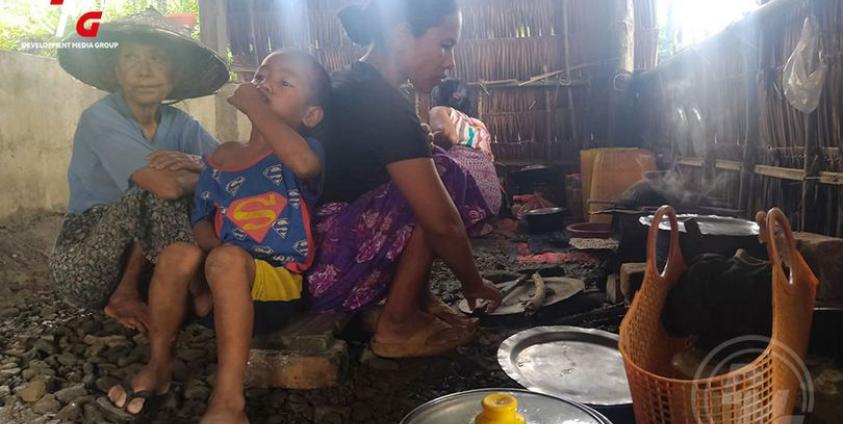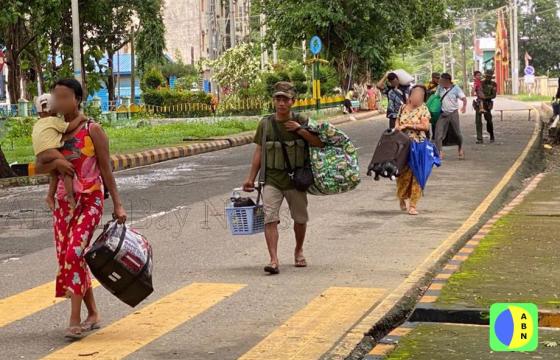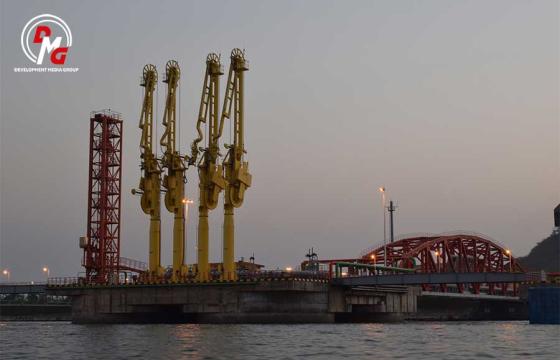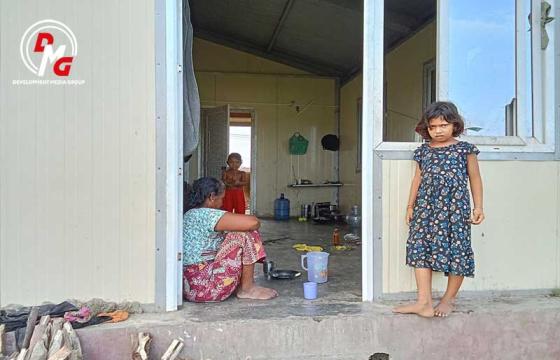Displaced people (IDPs) sheltering in the Rakhine State townships of Thandwe, Rathedaung, Pauktaw, and Ponnagyun are facing a lack of aid and support, due to blockades of trade routes into the townships.
A displaced person who fled from Napali Town’s Gyeiktaw Ward in Thandwe Township said: “Even cooking broken rice has become unaffordable. We are now resorting to eating congee. Getting the children enough food is a priority. We can't find fish, and rice prices have increased, so I am unsure how we will manage in the future.”
Since fighting started in Rakhine State in November 2023, food prices have been rising in the state due to the junta setting up blockades on both roads and waterways where goods are transported. This has led to a rise in commodity prices and significant challenges in accessing food and essential supplies, especially for IDPs.
To make matters worse for IDPs in Rakhine State, the junta has also restricted how international humanitarian organisations can operate, which has worsened the shortages being experienced by IDPs in the state.
A displaced woman sheltering in Pauktaw Township said, “We have no income now, and it’s extremely difficult to meet our food and basic needs. I can't do any work, and I can't afford to buy food. On days when we can find something to eat, we do. When we can't, we mix rice with the surplus water that drains off while cooking rice and eat that.”
Displaced people in Ponnagyun Township are also facing severe food shortages, and there is a pressing need for emergency aid and support, according to a representative from the Linn Yaung Chi Foundation, which is assisting IDPs in Ponnagyun Township.
He said: “There are a growing number of displaced people facing food shortages. Children who are already have weakened immune systems are experiencing developmental delays and increasing illness due to inadequate nutrition. While we are providing aid, it is insufficient, and we urge other organisations to also offer support.”
From November 2023 to June 2024 over 500,000 people were displaced in Rakhine State, according to a 1 July 2024 statement by the United Nations Office for the Coordination of Humanitarian Affairs(UNOCHA).








